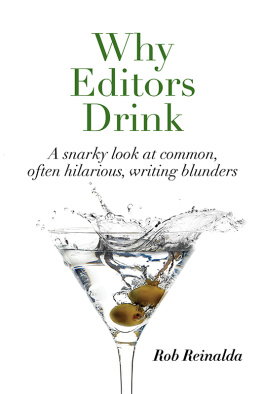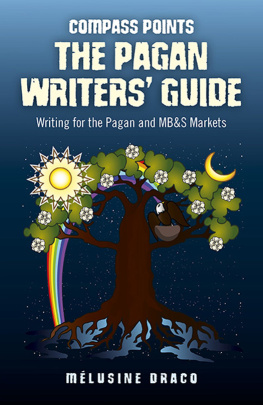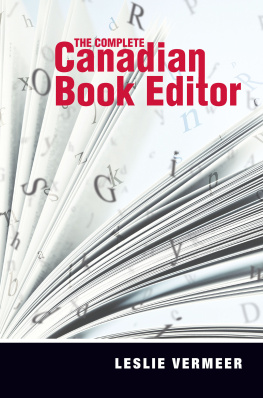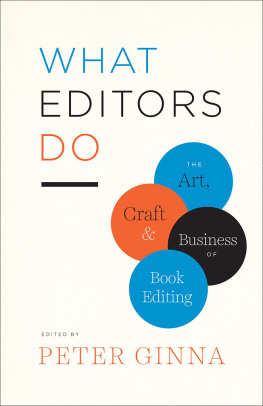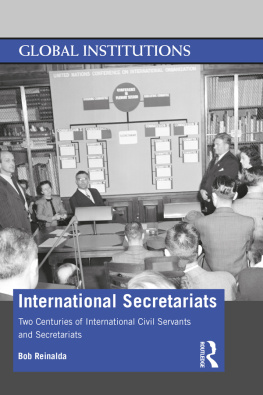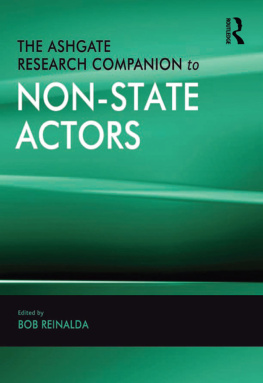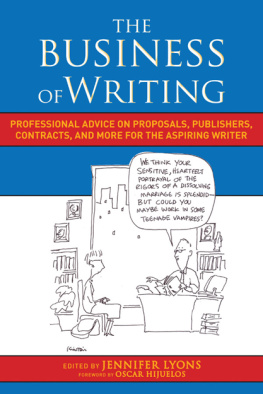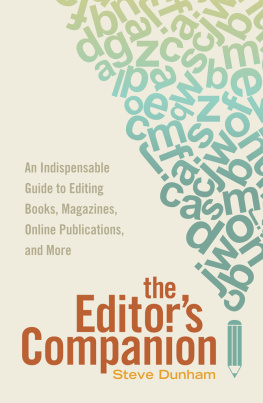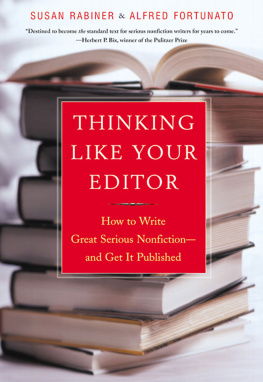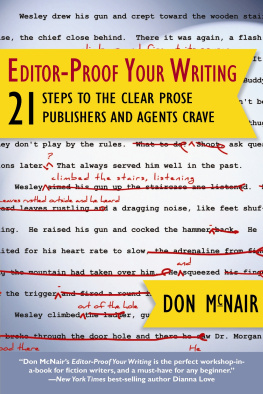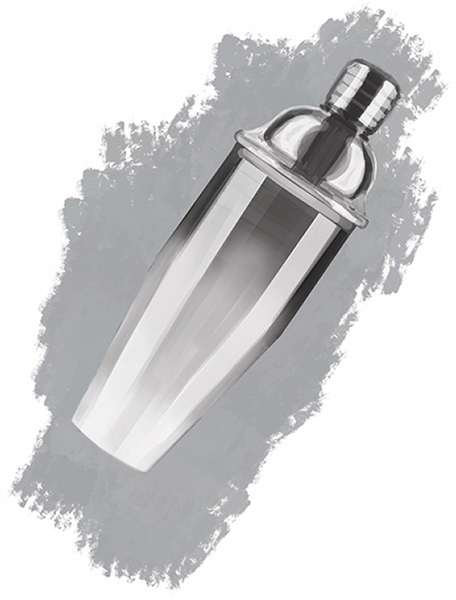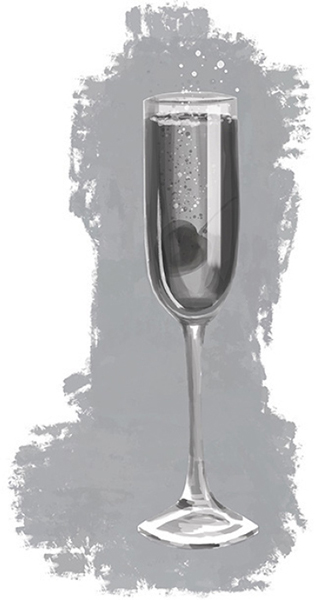First edition
Published by Word Czar Media ( www.WordCzarMedia.com ), USA
Copyright 2020 Rob Reinalda and Teresa Reinalda
All rights reserved. No original content or images may be used without written permission of the publishers.
ISBN: 978-1-0983277-1-2
Book design: Teresa Reinalda
Illustrations: Teresa Reinalda
Cover photo: Casther/stock.adobe.com
Disclaimer: The examples and commentary in this book are presented solely for the entertainment and edification of the reader and are in no way intended to impugn the character or professionalism of any individual, organization or other entity, public or private.
For Teresa,
who gently encourages me to keep going, who laughs in all the right places, and who makes the sun shine.
Contents
Introduction
Online writing can leave readers shaken, not stirred.
The Information Superhighway, as they dubbed the nascent internet, was supposed to bring a wealth of knowledge and insights within our reach. Extraordinary vistas awaited. Magnificent explorations of human ingenuity and intellectual pinnacles lay at our fingertips.
Then we screeched to a halt.
Before long, you see, everyone with a creaky pickup, a rusty hatchback with sketchy tires, or some other jalopy found that trundling up the digital on-ramp was as easy as securing a low-cost domain name.
Chaos ensuedenough to drive a person to drink.
Worst of all, though, was the business blog.
With no sense of direction, with blatant disregard for the rules of the road, and with no clue what the road signs meant nor how to use the brakes or the steering wheel, self-described writers galumphed onto the roadway, heedless of lane protocols. Their horns blared, and their flashers flashedmore for the sake of self-promotion than warning others. Still, wary wordsmiths who detected the hazards opted cannily to save themselves.
If they could, that is.
For some of us, the fate of intersecting with the verbally ineptthe linguistic dawdlers, fast-lane weavers and no-signal left-turnerswas unavoidable.
We were destined to take the path of greatest resistance: We became editors. Its rather like being a traffic cop in a demolition derby.
The accursed calling crept up on us, dawning at an early age. When Mrs. Pickering sought out volunteers to diagram a sentence, our hands shot skyward like rockets, drawing icy glares from our classmates.
Later, though, we became more utile than odious, as schoolmates sought us out, all smiles, entreating us to just look this over as they thrust incoherent essays our way and headed out for a night of pizza, while we stared with dilated pupils at the linguistic calamity before us, wondering where to start.
A few of our ilk were savvy enough to see the value of such labors and made sure to extract from their patrons a hefty sum for such overhauls. The rest of us went to work at newspapers.
My decades as a newspaper editor were extraordinarily rewarding. I worked with verbal virtuosi and relentless nitpickers, learning from both types and sharpening my natural acumen along the way.
The internetwhich Im sure youll remember from the opening paragraphstook a digital sledgehammer to print newspapers, which had survived pretty much everything else for centuries.
It took a while for news organizations to recalibrate and adapt, but they did. In the interim, tens of thousands of journalists bade farewellone by one, or scores at a timeto the industry. (In the purge that tolled my departure, I walked out the door with two Pulitzer Prize winners, two of the bosses whod hired me, and about 75 of our closest colleagues.)
Luckily, I was among the first to go. I found another editing position within monthson the day my erstwhile newspaper filed for bankruptcy. Soon after, the labor market was glutted with wordsmiths.
My new companyan online publishercatered to communicators, and I learned that essays about writing did quite well in terms of traffic, so I wrote one. I dont recall the topic. I do recall the response: More, please.
Within months I had an audience. Soon I forged professional alliances, even partnerships, with extraordinary language experts. They helped me gain traction on social media, and on and on. Im grateful.
As to the editing work, the curation process would funnel to my screen an array of articles from outside contributors displaying wildly disparate levels of competence. The difference from my newspaper days was striking.
Reporters are required to improve their writing skills, lest they be replaced by eager new faces who can readily distinguish a declension from a conjugation. For newspaper scribes, the message is clear: Get better, or get lost.
In the corporate world, people vary significantly in their desire to write and their aptitude for same. The general mandate is to churn out great quantity, not exceptional quality. Thats a recipe for disaster.
My job and my mission were to improve the clarity and fluidity of the writingor simply to distill the text to a few key points and pass those nuggets along to readers.
That would require, to varying degrees, a machete, a scalpel, pliers, a dental drill, a scythe, my gibberish-to-English dictionary, deep breaths, forceps, a potato peeler, an oft-tested sense of humor and the worlds greatest invention: the Delete key.
What also helped, at days end: a glass of pinot grigio. Maybe three.
I often joked with a fellow editor about the days rigors and frustrations. On one occasion I offered a Post-it reading: Pass the gin.
That phrase became shorthand for, This week cant end soon enough. Some weeks it was uttered before lunchtime on Tuesday.
I applaud anyone who takes up a career in editing. Again, I was fortunate. Most of my co-workersthose who were truly my colleagueswere gracious and grateful. All are talented professionals.
Editing as a vocation engenders certain familiar laments.
A piece you reworked could be 65 percent yours, yet the bylinealong with the credit for the well-crafted textbelongs to someone else.
In a given week, the same basic mistake might rear its ugly head in 20 different documents.
The quick turnaround you pull off to save the day might not get an acknowledgment of receipt, let alone a thank-you.
Then there are the mind-numbing, hand-wringing, head-shaking, jaw-dropping violations of common sense and the flagrant desecrations of linguistic protocols that prompt you to bellow a blue streak at the computer screen.
They fill this book, and they are why editors drink.
Grab a mug or stein, elegant stemware, a tumbler or a shot glass. Were going in.
Chapter 1
An aperitif
Like the refreshing beverage served before a bounteous feast, heres a quick offering to whet your appetiteand your paring knifebefore we venture into the banquet hall of business banalities.
As we embark, lets recall the words of the chain gang supervisor (Strother Martin) in Cool Hand Luke:
What weve got here is failure to communicate.
Thats a common assertion among business writers. They bemoan the clutter, the lack of clarity, the stodginess of others prose. They promise to impart to you The Secrets of Better Writing. Uh-huh.

